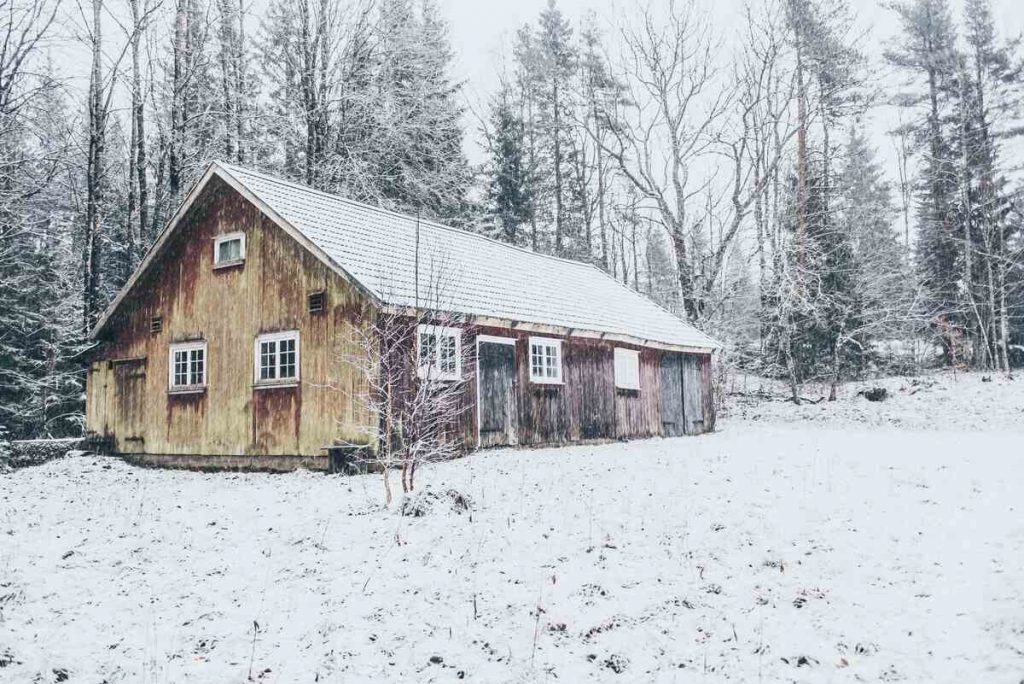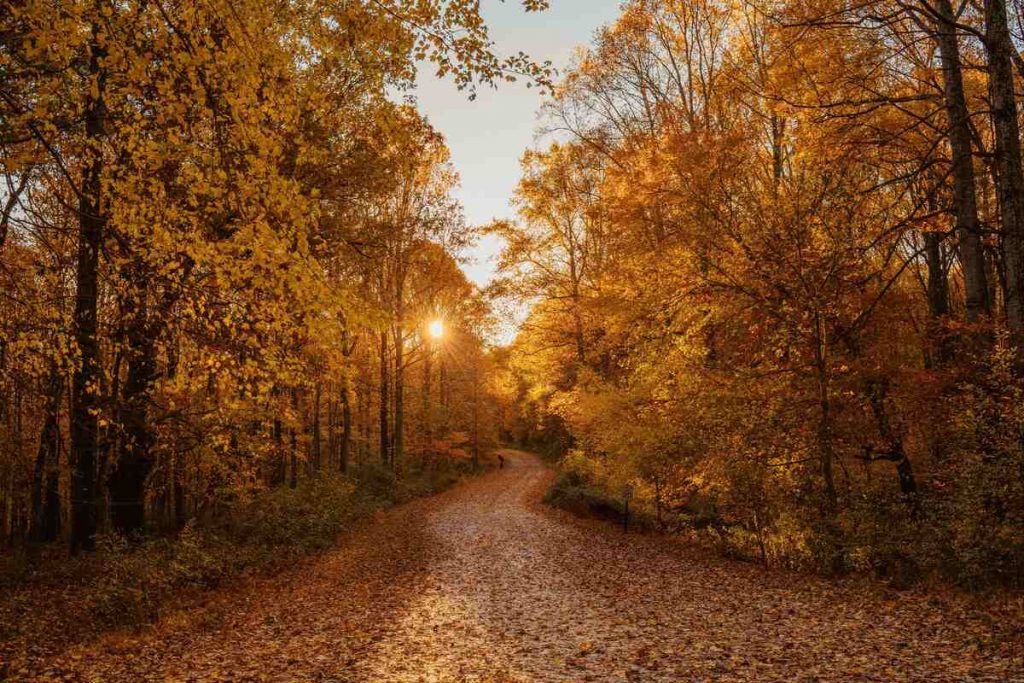I can’t think of a group more influenced by the weather than farmers. And as homesteaders, we aren’t that far off.
If you’re like me, you probably find yourself constantly checking the weather forecast. It helps us plan our days and decide whether we can get some outside chores done or if we should stay inside and do some fun indoor homesteading activities (or indoor chores… boring but necessary) and wait until the weather is better.
If you live in a cold climate, you understand how brutal and unpredictable it can be in the winter. Sometimes you have to cancel travel plans entirely if a surprise snowstorm pops up or the roads become slick with freezing rain.
With computer models, accurate weather predictions, long-term forecasts and Doppler weather radar at our fingertips, it’s never been easier to predict the weather. But how did they do it back in the day? Farming and homesteading have been going on for most of human history.
Back in the day, people relied on traditional winter weather lore, or winter weather folklore, to help predict the weather during the cold winter months in order to be prepared.
We don’t know where a lot of these sayings came from, but they’ve been passed down throughout generations, even over hundreds of years. And some of them seem to work!
Of course, take these winter weather folklore sayings with a grain of salt. A lot of them are based on superstitions and old wives’ tales from the olden days, but a lot of people swear by them.
Either way, it’s fun to read about the old winter weather tales of times gone by and find out whether any of them came true this year. I had fun learning all about these old-fashioned winter weather sayings, and I hope you do too! Which of these do you know?
- 1. "Clear moon, frost soon."
- 2. Woolly bear caterpillars: winter predictors?
- 3. Onions as weather predictors
- 4. August fog and winter snow
- 5. Can leaves on the trees predict winter weather?
- 6. Did you get lots of acorns? That could mean a bad winter is coming
- 7. Insect winter weather folklore
- 8. Have you seen a ring or halo around the moon? You might get snow or rain soon
- 9. Chickens, chickens, chickens!
- 10. Birds flying low may be a sign of a winter storm coming
- 11. Mushrooms galore, much snow in store
- 12. Can you predict the winter using persimmon seeds?
- 13. October winter weather folklore and superstitions
- Final Thoughts
1. “Clear moon, frost soon.”
While the origin of this old weather saying is unknown, this one is fairly accurate and does make some sense. Cloud cover acts as a kind of blanket to the atmosphere and keeps heat in, so if the night sky is clear in the wintertime, it’s usually a very cold, crisp night and you can expect a frosty morning.
2. Woolly bear caterpillars: winter predictors?
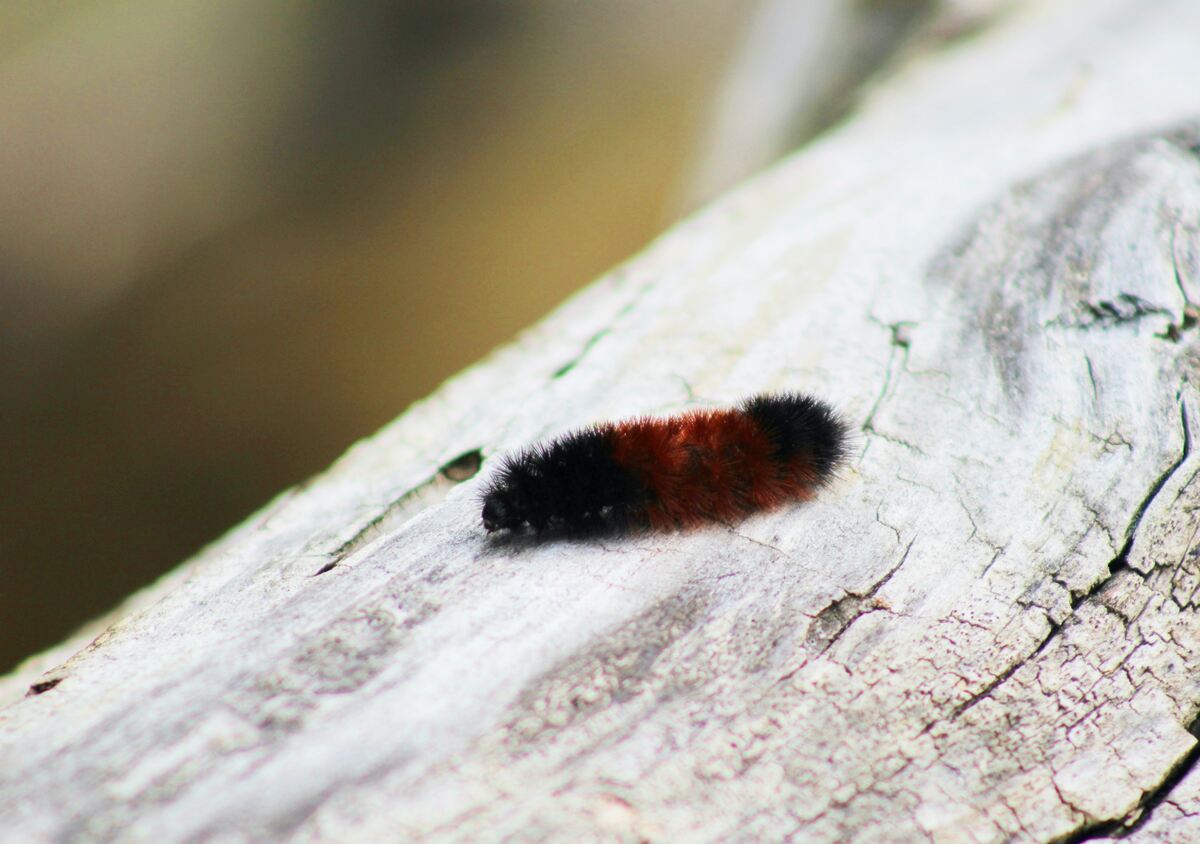
The woolly bear caterpillar, or the woolly worm, as it is sometimes known in the south, is a common “predictor” of winter weather.
According to folklore, you can predict the severity of the winter season based on the size and location of the woolly bear caterpillar’s brown band. The wider the brown band, the milder the winter will be. The longer the black bands on the caterpillar, the harsher the winter will be.
Finally, the position of the widest black band is supposedly related to when in the season the harshest part of winter will be. If the widest black band starts at the head end, the beginning of winter will be harsher, and vice versa.
This is a fun way to predict the winter and see if it will come true, but the reality is that the coloring of the caterpillar is based on its age, length of feeding time, and species.
3. Onions as weather predictors
“Onion’s skin very thin, Mild winter coming in; Onion’s skin thick and tough, Coming winter cold and rough.” -Gardener’s Rhyme
This winter weather lore also applies to apple skins. If you’ve harvested or purchased apples and onions locally (not if they were grown elsewhere), check the skins and see if it checks out!
4. August fog and winter snow
What is the saying about fog and snow? According to a winter weather folklore saying, you can predict the amount of snowfall by counting the number of fog days in August. The saying goes, “For every foggy morning in August, it will snow that many days in winter.”
Mark your calendar in the summertime and see if it works out!
5. Can leaves on the trees predict winter weather?
There are many winter weather folklore sayings based around leaves in the fall. Here are a few of them:
- If leaves fall early from the trees, winter will be mild.
- Leaves that cling to the trees later than usual predict a harsher winter.
- The brighter the colors of the fall leaves, the colder and snowier the winter will be.
6. Did you get lots of acorns? That could mean a bad winter is coming
According to an old-timey weather saying, if the ground is covered by acorns in the fall, the ground will be covered by snow in the winter.
This old wives’ tale is also related to squirrels. Because you just can’t have acorns without squirrels everywhere. The theory is that squirrels know they need to stock up for a long, cold winter, so if you see them gathering nuts early in the year, it’s also a sign of a harsh winter.
Of course, this is probably just a sign of a mast crop and the squirrels are just taking advantage of it.
7. Insect winter weather folklore
Some believe that insects give us cues and hints about the winter weather to come. Here are a few winter weather folklore sayings related to insects:
- If ant hills are high in July, the coming winter will be cold and snowy.
- The early arrival of crickets on the hearth (or your basement) means an early winter.
- When the cicadas start to sing in the dog days of summer, there will be frost in six weeks.
- “See how high the hornet’s nest; ’Twill tell how high the snow will rest.”
8. Have you seen a ring or halo around the moon? You might get snow or rain soon
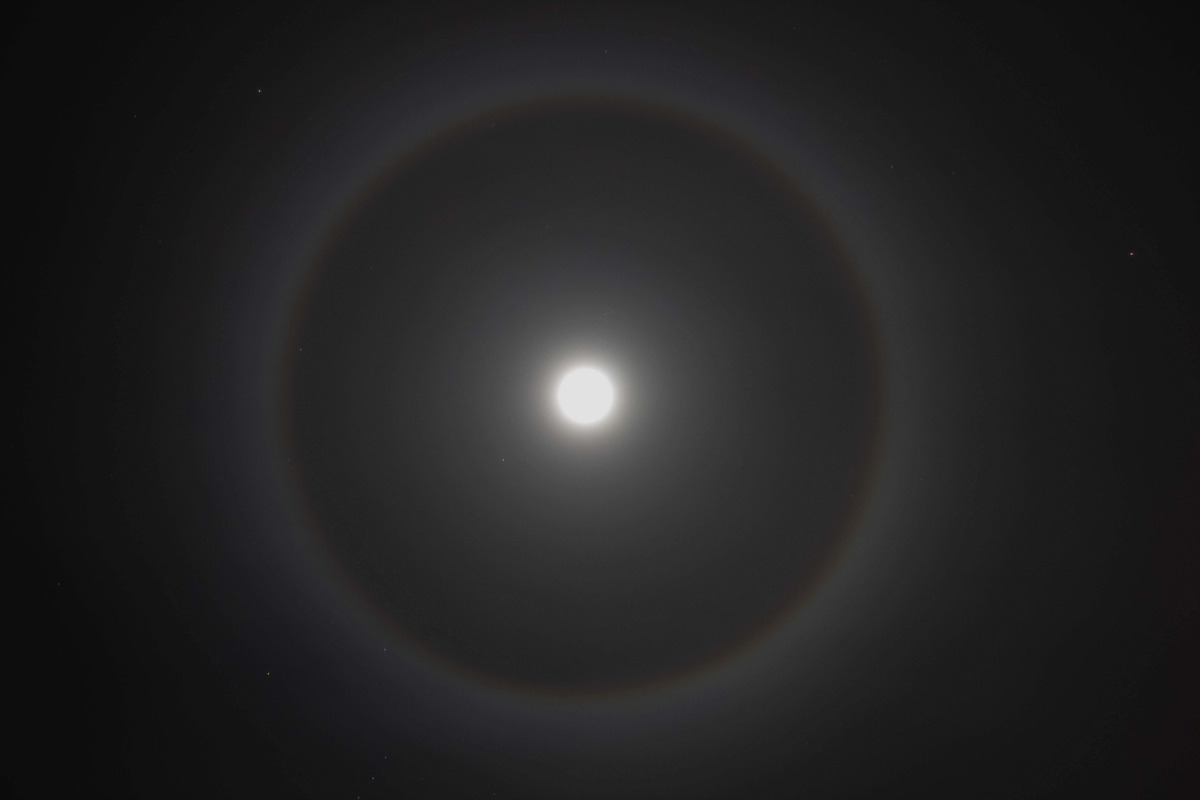
There’s an old winter weather saying that goes, “A ring around the sun or moon means rain or snow is coming soon.”
Winter weather folklore tells us that a lunar halo is a sign of unsettled weather. I would say there is some truth to this, since that ring is caused by light refracting off ice crystals suspended in the air. On a cold, clear night, it really is a spectacular sight to behold.
9. Chickens, chickens, chickens!
If you’ve ever had chickens, you’ll know that when the molt starts in the fall, it looks like a bunch of feather pillows exploded in your yard and coop. The feathers get EVERYWHERE!
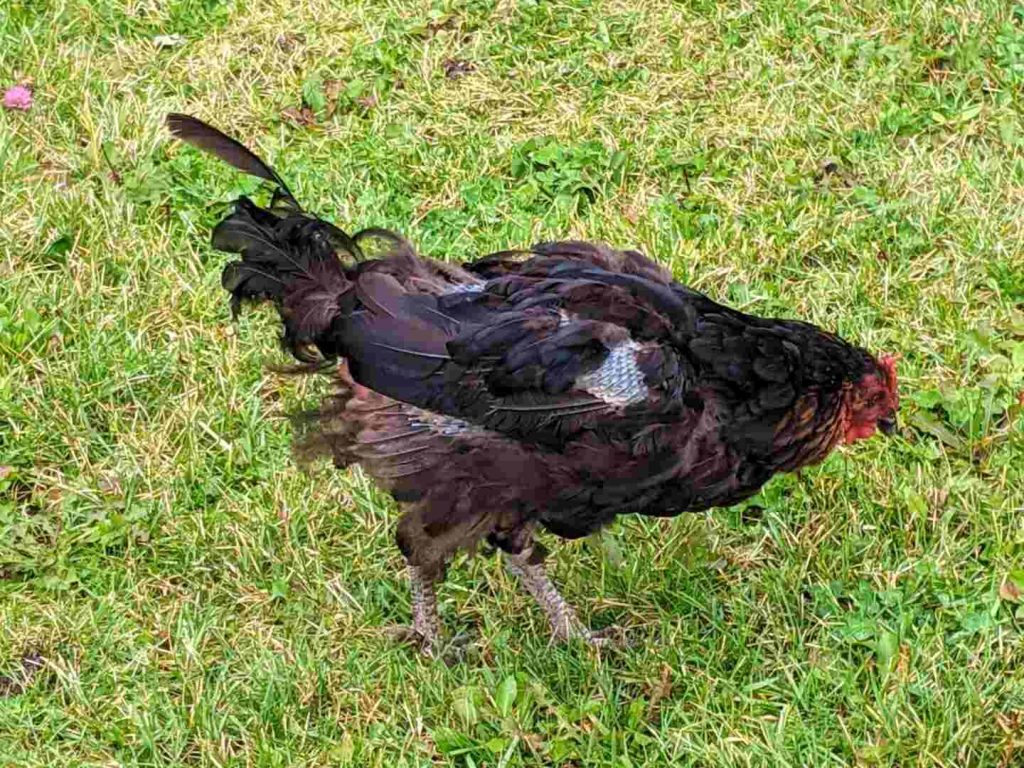
According to old-timey winter weather folklore, “If the rooster moults before the hen, we’ll have winter thick and thin. If the hen moults before the cock, we’ll have winter hard as a rock.”
I’m not completely sure how to interpret this one. Let me know in the comments what you think it means. I can tell you that most of my hens start molting before the roosters and we’ve been having super harsh winters lately, so make of that what you will.
10. Birds flying low may be a sign of a winter storm coming
Can birds tell when a winter storm is coming? There’s a common weather proverb that says, “Hawks flying high means a clear sky. When they fly low, prepare for a blow.”
People usually relate this to rain and thunderstorms, but it can apply to winter storms as well. This winter weather folklore actually does have a lot of truth to it – storms and bad weather are usually associated with low air pressure, making it harder for birds to fly high in the less-dense air. Insects also fly lower to the ground when the air pressure is lower, causing some birds to hunt lower to the ground.
In fact, some scientists believe that birds have their own little internal barometers and know hours in advance when a winter storm is coming. Pretty cool!
11. Mushrooms galore, much snow in store
Have you seen lots of mushrooms popping out of the ground during the year? The full saying goes, “Mushrooms galore, much snow in store. No mushrooms at all, no snow will fall.”
Supposedly, if you’ve been picking lots of mushrooms or seeing a lot of them coming up, expect a wallop of snow in the coming winter.
I can’t say this one works for me, though. Last year was one of the driest years I’ve seen in a long time, and while we normally pick ourselves a bunch of chanterelle mushrooms, we couldn’t get any last year… and we got one of the snowiest winters of all time!

This past summer was great for foraging and mushroom hunting, so we’ll see how the winter goes…
12. Can you predict the winter using persimmon seeds?
How many of you have heard of this one? This old-fashioned tale of winter folklore says that you can predict the winter weather by the shape of the kernel, or cotyledon, inside the persimmon seed. You of course need to use a locally-grown persimmon for this – American persimmon trees grow in USDA zones 4-9.
By cutting the seed in half and looking at the shape inside, it can tell you one of three things:
- A knife shape means the winter will be cold and bitter, “cutting” like a knife.
- A spoon shape means there will be lots of snow to shovel.
- A fork shape means the winter will be mild with light snow and “good eats.”
Now, I have a few questions about this one: Is it the first persimmon of the year that predicts the winter? The first seed that you find in the persimmon or should you take an average?
Of course, I know doesn’t really matter – it’s all in good fun!
Learn more about predicting the weather with a persimmon seed!
13. October winter weather folklore and superstitions
There are a lot of cold weather superstitions and weather lore based around the month of October. Here are a few of them:
- If October 9th is a sunny day, the following winter will be cold and snowy.
- “A warm October, A cold February.”
- “Much rain in October, Much wind in December.”
- “Full moon in October without frost, no frost ‘til the full moon in November.”
Final Thoughts
Although they cannot compare to modern meteorology in terms of scientific accuracy, these old-fashioned winter weather folklore sayings are relics of the past and are fading fast in an ever-increasing modern world. The knowledge and wisdom given to us by past generations is something we should cherish and keep alive forever.
What’s your favorite old-school winter weather saying? Is there one that you swear by? I always check the Old Farmer’s Almanac for the seasonal weather prediction. It just seems to come true!
Let me know if I’ve missed any of your favorite weather proverbs and folklore and share them in the comments below!

